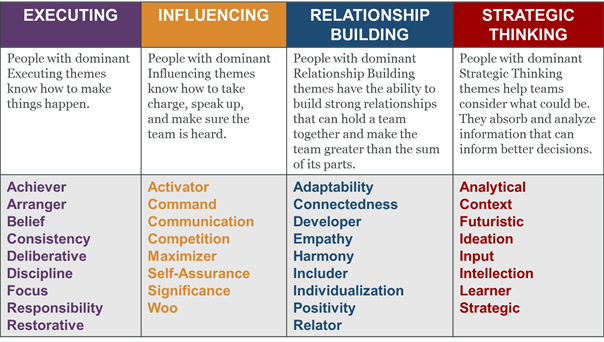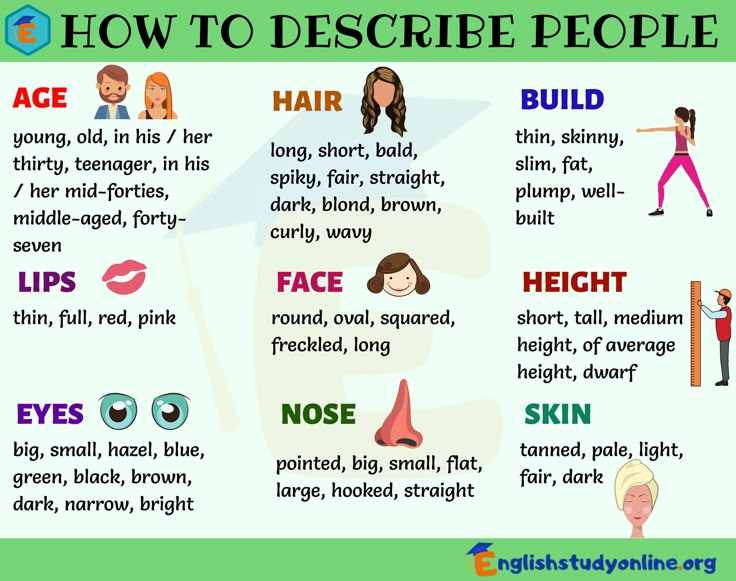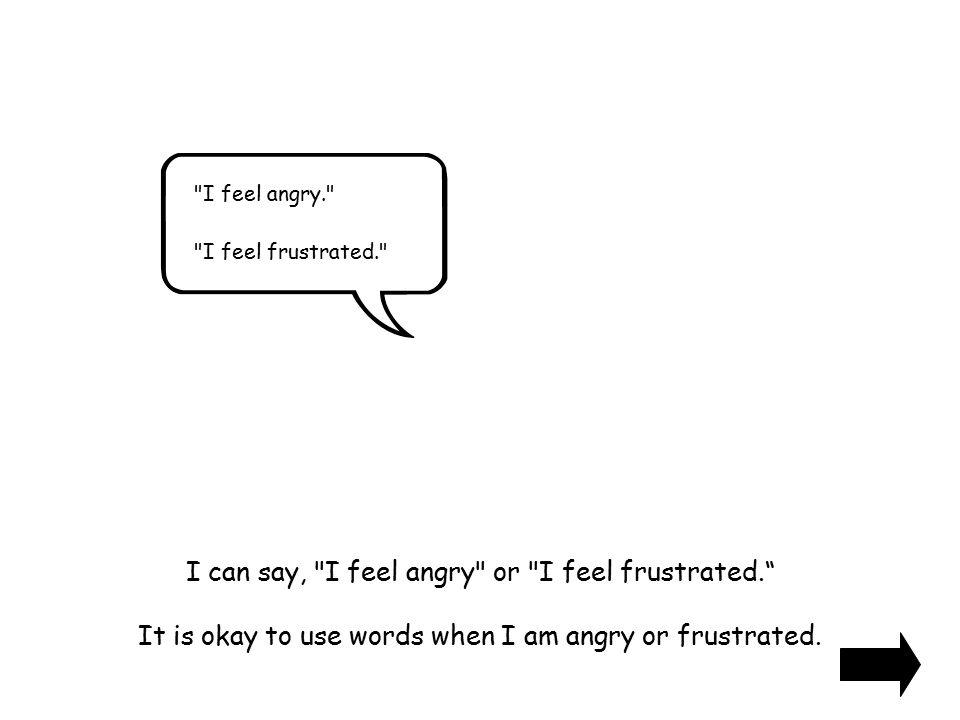How to deal with dominating people
How to Deal with a Dominant Personality
Run. Hide. Triple-bolt the door. Declare yourself permanently busy.
One of these is probably your first response when dealing with one of those people who has to always be right and not only expects you to agree with them, but to do whatever they say while feeling you must hand them your dignity and personal choice on a silver platter.
Unfortunately, sometimes there will be such a person in your life that you just can’t avoid. They could be your co-worker, your boss, your (not so) Great-Aunt Clarice, or your best friend’s boorish boyfriend.
And, you may be more successful at inventing a time machine than at transforming them into a kinder, gentler, more give-and-take person. So what can you do?
You can look for ways to keep your sanity, your dignity, and your sense of humor, (not to mention your job) while dealing with these types as peacefully as you can.
Here are a few ideas.
Let them “win” when it doesn’t matter too much
A person with a dominant personality feels that they know best, or needs to feel in control.
If the issue isn’t really important, it may be a good idea to just let them have their way, at least on the surface.
You may sometimes allow them to take the lead or think they’re telling you what to do. Remembering that it’s a choice you’re making, and that the issue isn’t earth-shaking, can help put things in perspective.
Even when you don’t really have a choice about complying – such as when it’s your employer – you can still choose whether or not to make an issue of their manner and you may decide that sometimes you can just let it go.
Reframe the interactions in your mind
Remember, you’re choosing to keep the peace, not letting yourself be dominated, even if that’s how they see it. At the very least, you can remind yourself it’s them, not me. Try not to take it personally.
If you make a conscious choice to humor them when necessary, you’ll feel less powerless and more in control of the situation. Put a smile on your face, be polite because you want to be, listen just as much as you have to to survive, and then get on with your work and life.
Address the facts or the issue at hand, not their manner
To a dominant personality, getting things done, the way they want them done, is more important than manners or peoples’ feelings. But it’s possible that they really don’t know how much they upset other people.
So try being as matter-of-fact as they are. And if you have an objection, make your argument data-driven rather than emotional.
But also show them how they may be inadvertently upsetting people
If they truly don’t seem to be deliberately stomping all over your feelings, then you might let them know how their behavior affects you or others. Don’t attack or accuse; just give them a mirror to look in, and a graceful way to make adjustments.
Though it might be easy to assume they don’t care how they affect others, or that they even like making them feel bad, it may be that they aren’t aware of how they come across.
If you give them the benefit of the doubt and show confidence in their goodwill, they just might prove you right and be willing to adjust, at least a little.
Project strength and dignity, without being confrontational
While you may need to appear somewhat yielding at times to manage this type, if you put out a sign announcing you’re a doormat, they’ll gladly stomp all over you. While it's best not to engage in a battle of wills, or to behave the way they do, you do need to show that you respect yourself and expect some respect from them as well.
Hold yourself erect. Make eye contact. Use language that shows you’re being accommodating, not cowed. Maybe something like: ‘I see your point. I think we can find a way to make that work.’
Try to understand why they’re like that
Maybe they had a traumatic childhood, with role models they’re now unconsciously imitating. Or they’re hiding a deep-seated insecurity. Or they could just be so focused on results they don’t even think about the humans they’re interacting with.
If you try to figure out their reason, this can help in two ways.
First, if you understand what made them this way, it will help you to have some compassion for them, and maybe take some of the sting out of their domineering manner.
Secondly, it may also give you insight into how to manage their behavior in a way that works better for you.
Look for their more likable side
It could be that a dominant person has other more likable traits, if you get to know them better.
Maybe they’re over-focused on efficiency at work because they need to get home on time to care for an elderly parent. If you get them to talk about that, you might see their loving, caring side, and realize how worried they are about their family member.
Or their lack of a softer side may also mean that they are able to achieve results and make valuable contributions to your team’s efforts in their unique way. And that too-bossy manager may be insecure in his new role and just wants to feel he’s doing a good job.
Maybe if you can talk with them over a cup of coffee you’ll find that you share a favorite hobby, or they adore their labradoodle, or they’ve lived in a country you’ve dreamed of visiting.
Whatever it is, if you can see them as a multi-faceted human being, it could be easier to overlook their less endearing manners.
Limit your exposure to them
Though you have to deal with a dominant person at work or family dinners, you might be able to find ways to limit the time you must spend interacting with them.
If it’s a co-worker, you could rearrange your hours, or work in a different part of the office, or get your supervisor to serve as a buffer. If it’s a family member, maybe you just won’t be at all of the events they usually attend, or you can help out in the kitchen, sit at the other end of the table, or play a game they don’t like in another room.
If all else fails, go over their head
Your boss usually also has a boss, at least in some sense. If they don’t have anyone above them on the authority ladder, there’s still the human resources department, the legal department, or something else to help keep them in check if they truly step out of line.
And that annoying relative who insists on treating you like you’re 5 and forced to obey them probably has at least one other family member that they’re afraid of, or look up to.
So, if you’ve tried whatever else you can think of and they still overstep in a way you can’t live with, find someone who has the power or personality to keep them in check.
Do this selectively, and quietly. You don’t even have to let them know directly that this is what you’re doing. But it will show them that you hold a wild card you'll use if they back you into a corner.
Summary
Sometimes life requires us to deal with someone with a domineering attitude. It may not be easy, but there are ways to keep the peace while not feeling trampled on. It just takes some creativity, perspective, and humor, and an occasional willingness to grin and bear it, while not taking it personally.
6 Ways to Deal with a Dominant Personality
Source: Photo by Los Muertos Crew from Pexels
Almost every team has at least one dominant personality type who is motivated by winning, competition, and reaching results. While dominant personality types are often seen as commanding and confident, their characteristics have a flip side. They can also become obstinate, aggressive, and overly direct.
They can also become obstinate, aggressive, and overly direct.
Take Gabe, a business development manager at a food and beverage company. Gabe was regarded as a “doer,” or someone who is outgoing and always up for a challenge. He was decisive, never hesitated, and took fast action to drive new sales. His demanding, assertive style landed the company new accounts, but it came at a cost. Gabe often upset senior leadership when he circumvented authority in order to push through new procedures. He also tended to fixate on sales targets to the detriment of long-term client relationships.
Working with someone like Gabe can be a challenge, especially if you’re on the opposite end of the personality spectrum. Many of my coaching clients, who tend to be reserved, empathetic, people-oriented professionals, struggle with dominant personalities. They find their dominant colleagues’ controlling, demanding nature hard to deal with, and many of my clients have difficulty standing their ground in the face of the dominant type’s strong will.
If this sounds familiar, then you may find yourself wondering why your dominant colleagues do what they do and how to find peace in working with them. The good thing is that you don’t have to give up being kindhearted and caring if that’s your natural disposition. But if you want to be successful in work life, then it’s essential you learn to work with personalities that are different than your own, including dominant types.
6 Ways to Work More Effectively with Dominant Personality Types
1. Focus on the “what”—not the “how.” Dominant personality types are task-oriented. They care about outcomes, not processes. When speaking with them, focus on concrete, tangible facts. Opt to make direct assertions or suggestions rather than approaching conversations as a brainstorming session. Talk about how your proposal affects the bottom line and the expected results.
2. Skip the small talk. Dominant personalities types operate on urgency and appreciate efficiency. They are the type of colleagues that you should skip pleasantries with and get straight to the point. For example, omit phrases, such as “How are you?” or “I hope you’re doing well,” from the start of your emails. Similarly, jump right into your meeting agenda, ensuring you keep banter to a minimum.
They are the type of colleagues that you should skip pleasantries with and get straight to the point. For example, omit phrases, such as “How are you?” or “I hope you’re doing well,” from the start of your emails. Similarly, jump right into your meeting agenda, ensuring you keep banter to a minimum.
Don’t waste their time rehashing events, repeating details, or building up to your point. Lead with your key message and cut to the chase.
3. Give them independence. To influence a dominant personality type, you have to understand what motivates them, which is achievement and control. The more you can give this person room for independent problem-solving and decision-making, the more effective they’ll be. Dominant personalities prize autonomy, so don’t be surprised if one-on-ones are brief or non-existent. Before delegating to a dominant personality, make sure the areas of authority are clearly defined and articulated. Focus them on bold, ambitious long-term goals to keep them consistently aiming higher.
4. Thoughtfully highlight areas for improvement. When giving this type of person feedback about their performance, focus on how the behavior changes that you’re requesting will help them reach their goals and get better results. For example, one of Gabe’s colleagues pointed out that Gabe’s bluntness was negatively impacting his direct reports. The colleague shared that if team members left, it would mean Gabe had fewer resources with which to fulfill client sales, and therefore, he may fall short of his targets. That framing inspired Gabe to change his approach. You can also use comparison as a way to constructively motivate those with dominant styles. For instance, highlight competitors who are performing better as a way to energize them to improve.
5. Fill their gaps. Healthy, productive teams require a mix of personalities. If you’re working alongside a dominant personality, boost their behavior by being their foil.
While dominant types tend to be innovative and progressive, they can also overlook risks and act too quickly. If you tend to be a more careful, deliberate decision-maker, you can interject stability and reason into the process. Likewise, you can be the one to break down ambitious plans into specifics and guide actual implementation.
If you tend to be a more careful, deliberate decision-maker, you can interject stability and reason into the process. Likewise, you can be the one to break down ambitious plans into specifics and guide actual implementation.
6. Don't take their actions personally. Dominant personality types may respond curtly. Remember that their brusqueness does not mean they’re angry, upset, or rejecting you. Recognize that if they ask you pointed questions, it’s because they are engaging you, not because they lack trust. Expect brevity in your interactions, and understand that it’s part of their normal pattern of behavior—not a reflection of your adequacy.
If you’re someone who has struggled to assert yourself and speak up in the workplace or has battled with overthinking and a lack of confidence in your decision-making, then there’s a lot to learn from dominant types. Integrate the upside of their style into your own, and you’ll be amazed at your team’s effectiveness.
© 2021 Melody Wilding // originally published on Fast Company.
LinkedIn image: Daniel M Ernst/Shutterstock. Facebook image: Motortion Films/Shutterstock
5 effective tips on how to communicate with difficult people
Contents of the article
Almost anyone can find a common language with a nice person, when common topics are immediately found, the conversation becomes interesting and exciting. But how often do we come across such people?! Sometimes you have to establish communication with difficult people at work, in everyday life, and not everyone can cope with this. This skill can be useful for you to complete tasks and solve various problems. Let's take a look at 5 working methods that will help you cope with even the most difficult personalities.
Be calm
Being calm will help you hide your emotions and prevent another person from influencing you. Most conflicters deliberately behave in such a way as to piss off a person and begin to sort things out with him. Here it is important not to succumb to tricks, take a couple of breaths, relieve internal tension and calmly continue the dialogue. When a difficult person feels that you are confident and not going to defend yourself, then he will lose the desire to behave in this way.
When a difficult person feels that you are confident and not going to defend yourself, then he will lose the desire to behave in this way.
Empathize with the interlocutor
Often difficult people behave defiantly because they are overwhelmed with pain that eats from the inside. In such a situation, a person needs sympathy, not abuse and punishment. Therefore, try to put yourself in the place of your interlocutor, feel what the person feels, and pay attention to him.
Interact Consciously
Conscious communication is when you can disengage negative emotions by remaining calm, reasonable, and direct throughout the conversation. This is the ability to conduct a constructive conversation, not paying attention to sarcasm or irony. For example, to interrupt the endless stream of thoughts, ask directly "what do you end up offering?". Or, to discourage the interlocutor and dispel anger, answer that perhaps the interlocutor is right. Do not use categorical words like “always”, “never”, “impossible” in communication. You will find even more useful recommendations in the course “Building Relationships the Right Way”. After training, you will be able to build good relationships not only with colleagues at work, but also with your team, family and children.
You will find even more useful recommendations in the course “Building Relationships the Right Way”. After training, you will be able to build good relationships not only with colleagues at work, but also with your team, family and children.
Stop the conversation if it has gone too far
If you behaved confidently and consciously, sympathized with the person, but the conversation is still accompanied by negativity. So it's time to stop it. This can be done using the following phrases:
- “Are you sure that your proposal is the only correct one?”
- "Do you think I don't understand what you are trying to do now?"
- “After listening to all your reproaches and complaints, I understand that you talked too much about this. What way out of this situation do you propose?
Set boundaries
Another way to sober up a person and put him in his place is to point out your boundaries, which should not be violated. To do this, speak to the interlocutor confidently, in a strong and calm voice, looking directly into his eyes. Tell the person "I see you've had a difficult day, let's end this conversation." Such behavior, if not reassuring, will definitely sober a person and make him think.
Tell the person "I see you've had a difficult day, let's end this conversation." Such behavior, if not reassuring, will definitely sober a person and make him think.
How to communicate with difficult people: 11 rules of dialogue
201 152
A person among peoplePractices how to
In today's world it is difficult to maintain balance: sometimes just watching the latest news is enough to get psychologically traumatized. We constantly dive from emotion to emotion and cannot keep the most important thing in focus. Against this background, it is difficult to maintain one of the most valuable acquisitions of a person - the ability to be in contact. It is very important not to devalue the relationship.
The first thing that helps to get out of an emotional tailspin is rationalization, ordering. For people who are used to living with feelings, this is a valuable skill that needs to be developed.
1. Prepare for contact
Before any contact, you need to tune in internally - like you tune an instrument before a concert. Take a stable position: sit or stand so that you feel support, balance.
Take a stable position: sit or stand so that you feel support, balance.
Say only what you are sure of and what is important to you, keep in mind why you entered into a dialogue. If there is a chance that you will be provoked to emotions, find a point in front of your eyes or a piece of clothing that will symbolize stability and balance for you.
2. Tune in to find a solution, not a quarrel
When starting a difficult conversation with a loved one, say out loud or to yourself: “I start talking in order to stay in touch, to be with you, and not to to quarrel." Remember that the dialogue is not to win the battle, but to understand each other. When in contact with the child, stay at the level of his eyes, touch the body. At the end of a difficult conversation, be sure to say, "I'm with you."
3. Be open
People around you have the right not to believe us, not to love and not understand us, not to agree with us - this will have to be experienced. Everyone has their own truth. Pay attention to what is hidden behind the words, look for a deeper meaning. To do this, try to calm down and be open in dialogue.
Pay attention to what is hidden behind the words, look for a deeper meaning. To do this, try to calm down and be open in dialogue.
4. Show respect for the interlocutor
Everyone has the right to imperfection, mistakes, delusions - this does not negate the initial respect for the interlocutor. Remember that you can be wrong, let yourself learn. And our opponent's respect for us begins with our respect for ourselves.
5. Treat with understanding the peculiarities of perception of the interlocutor
Everyone has their own language and their own reaction speed. We perceive information subjectively, based on our experience and personal characteristics. Don't be afraid to ask again. Give yourself and the other person time to absorb the information. Use pronouns “I” more often instead of “you” (I feel, I am offended, I am angry, I think).
6. Separate your own feelings from those of others
In communication, we tend to project our thoughts or unmanifested desires onto the interlocutor. In the same way, accordingly, other people's feelings are attributed to us. Learn to discern these projections and stay in touch with yourself.
In the same way, accordingly, other people's feelings are attributed to us. Learn to discern these projections and stay in touch with yourself.
7. Speak the language of the interlocutor
It is not for nothing that there is an expression “to be on the same wavelength”. Try to catch the mood of the interlocutor, to understand what worries him right now. A good joke can easily turn into an awkward situation. This happens if your opponent is strict and distant.
8. Don't let yourself be manipulated
When dealing with aggressive people, one should be able to get out of aggressive contact in time, not to take accusations personally. Such people often use general phrases and the pronoun "we" for manipulation.
However, there are also passive-aggressive interlocutors. They prefer to talk behind their backs, throw the words "after". In this case, it is important not to project a feeling of guilt or hyper-responsibility onto yourself. After such contacts, do not deny yourself a good rest.
9. Do not get personal
Do not discuss the personal qualities of the interlocutor. Talk only about facts and events that are relevant to the subject of the conversation. If the dialogue nevertheless turns into an argument, it is often pointless to continue it. Try to turn the conflict into a joke. In such cases, I recall the phrase “Mold reproduces by spores. Don't argue with mold."
10. Show the interlocutor that he is valuable to you
When talking with a person, repeat to yourself: “I see you”, “Your thoughts and your presence are important to me, even if I do not agree with you.” Let the interlocutor understand that he is valuable as a person.
11. Learn from your mistakes
It is important to be able to complete a dialogue. “Thank you”, “see you soon” - any words that sound sincere at this moment will do. Analyze past dialogues and learn from them. A self-confident person calmly talks about what he feels and expects, thanks for the contact and knows how to accept compliments.














